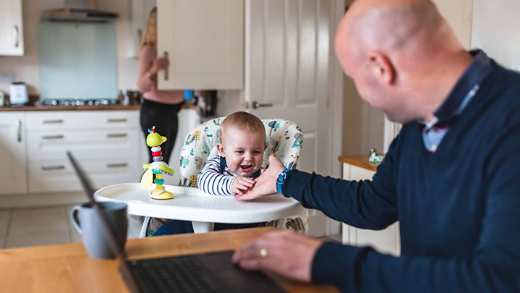What is probate?
Probate is the legal process of administering a deceased person’s money, property and possessions – known as their estate – and involves distributing these as inheritance, after any taxes or debts are paid.
The probate process is similar in England, Wales and Northern Ireland, but in Scotland the executors of the will have to apply to court for Confirmation – a document which gives them the authority to administer and distribute the estate. This article covers the process for England and Wales.
Whether you need probate depends on the financial situation of the person who’s died. It works in a similar way whether or not the person made a will.
Who is responsible for probate?
If the person who's died has left a will, they’ll have named someone to carry out their wishes and take on the process of distributing their assets and settling their affairs. This person is called the executor, and can be a friend, a relative, or a professional, such as a solicitor.
Sometimes there may be more than one executor but they must work together to carry out the instructions in the will.
If there’s no will they have ‘died intestate’ – this means they haven’t left any instructions about how they would like their estate distributing.
When this happens, the closest living relative – known as next of kin – will have to follow the legal process of probate under the ‘rules of intestacy’. The general principal is that the estate will be divided between the closest living relatives, such as the deceased person’s children (if they are over 18), parents, or siblings.
Dealing with probate after death
If you’re the executor of the will, you might have to apply for a Grant of Probate which is a legal document giving you the authority to act according to the instructions in the will. You can still be the executor even if you’re going to be inheriting under the terms of the will.
Once you’ve got probate, you can distribute any property, money and possessions as per the deceased’s last wishes.
On the other hand, if the entire estate including property and bank accounts were held jointly by the deceased and their spouse, and they are joint tenants, there is no need for probate as the spouse automatically inherits everything under the right of survivorship.
If they are tenants in common, and each joint owner owns their own distinct share, probate may still be needed.
How does probate work?
Determine the value of the estate
The first thing you need to do is find out the value of the estate, which means identifying all of the deceased’s assets. This may include property, savings, shares, private pensions and valuable possessions. You’ll also need to identify their liabilities (debts).
Calculate Inheritance Tax
Where applicable, you’ll need to pay Inheritance Tax to HM Revenue & Customs (HMRC). Inheritance Tax needs to be paid within six months of the person dying before it begins to build up interest, so consider making some payments as quickly as possible.
You’ll also need to determine the value of any gifts the deceased gave away in the seven years before they died. These have to be included in the value of the estate and may incur Inheritance Tax.
The Government website has help for working out Inheritance Tax Footnote [1].
Apply for probate
You’ll then need to apply for probate and you can do this through gov.co.uk following the step-by-step process Footnote [1]. You’ll need a copy of the death certificate or interim death certificate and you’ll be asked to provide the value of the estate. Once you’ve completed the application, you’ll need to send the original will and any codicils to the address given. Codicils are any extra additions to the will that the deceased person has added. They will be in the form of an attachment.
When you have probate, you’re legally responsible for the deceased person’s assets until everything has been passed on to the people who will receive the inheritance – known as the beneficiaries.
Transfer assets and distribute the balance to beneficiaries
HMRC will need to know the estate value, income, and how much tax is owed. An adviser may be able to help you with those figures if you’re not sure how to do it.
If you need to find an adviser you can find one near you at www.unbiased.co.uk
The time between getting probate and all the assets being distributed is called the ‘administration period’. During the administration period, you’ll have to decide where to hold the financial assets – this usually involves setting up a bank account that's separate from your own. You can hold the finances in this account, pay any due debts and taxes, and receive funds from the sale of assets.
As long as there are no complications or challenges to the estate, the final phase will be the transfer of assets to the beneficiaries in line with the terms of the will or rules of intestacy.
Grant of probate v letters of administration
You'd need a Grant of Probate if the person who's died left a will. If the deceased has died without a will, the next of kin will need to apply for a Grant of Letters of Administration Footnote [1]. A Grant of Letters of Administration is released by the Probate Registry and authorises the next of kin as administrator of the estate, and they’ll have to follow the rules of intestacy to determine who inherits.
This gives the administrator the legal power to manage the distribution of assets and follow the instructions of the will.
How much does it cost to get probate?
It costs £273 if the value of the estate is more than £5,000 and you apply yourself Footnote [1]. It’s free if the value is less. You’ll need to pay online by debit or credit card.
If you use a probate practitioner, it’s more costly but may be worth it if you’re worried about the amount of paperwork you’ll have to deal with. This is usually paid out of the estate.
You could also use a solicitor for guidance, and pay-as-you-need advice.
Is life insurance included in the estate?
In the UK, the payments we make may be included in the estate for Inheritance Tax purposes, unless you put your policy in a suitable trust.
If you’ve put your policy in a trust and have a named beneficiary or beneficiaries, then any payout isn’t generally included as part of your estate.
Some couples take out joint life insurance and if one dies it would automatically be passed to the surviving spouse. The life insurance payout will not be part of the deceased’s estate but will fall into the surviving spouse’s estate.
In simple terms, as an example, a husband dies and the joint life insurance pays off the mortgage. The wife is left with the house and when she dies the next of kin will inherit the house and may need to pay Inheritance Tax depending on the value of the estate.
Sometimes people plan to cover the cost of their funeral by taking out a funeral plan or an Over 50 life insurance (for the beneficiary to use towards funeral costs if they wish). If this is outside of the estate (under trust), it could give the next of kin one less thing to worry about if they don’t have the funds readily to hand. But bear in mind, if the plan was taken out many years ago it might not have grown with inflation and may only cover some of the funeral costs.








